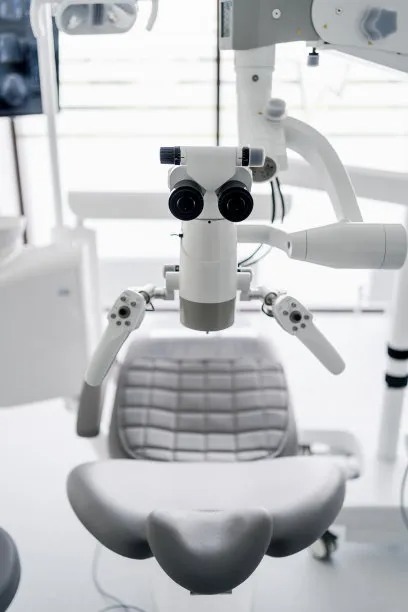Summary: Periodontal disease is a serious gum condition that can significantly affect oral health and overall well-being. It begins with inflammation of the gums and can progress to more severe complications if left untreated. This article explores the causes of periodontal disease, ranging from poor dental hygiene to systemic diseases. It also delves into various treatment options, emphasizing the importance of early intervention and professional care. Furthermore, it highlights the impact of periodontal health on systemic conditions, such as cardiovascular disease and diabetes. Achieving a healthier smile necessitates understanding these factors and taking proactive steps to combat periodontal disease.
1. Understanding the Causes of Periodontal Disease

Periodontal disease, or gum disease, primarily arises from the accumulation of plaque, a sticky film of bacteria on teeth. When not removed through regular brushing and flossing, plaque hardens into tartar, leading to inflammation and infection of the gums. Poor oral hygiene practices are the most common cause, but several other factors can exacerbate the problem.
Genetics can play a significant role in ones susceptibility to periodontal disease. Some individuals may inherently have a weaker immune response to bacteria in the mouth, making them more prone to gum infections. Additionally, lifestyle factors such as smoking greatly increase the risk, as tobacco use impairs blood flow to the gums and hinders healing.
Other systemic conditions, such as diabetes and hormone changes during pregnancy, can also contribute to the onset and progression of periodontal disease. Both conditions affect the body’s ability to regulate inflammation and response to infections, highlighting the intricate link between oral health and overall bodily health.
2. Recognizing the Symptoms of Periodontal Disease
Identifying periodontal disease early can make a significant difference in treatment effectiveness. Common symptoms include swollen, red, and tender gums that may bleed during brushing or flossing. Persistent bad breath, or halitosis, can also signal gum disease, resulting from the bacteria in infected gums.
As the disease progresses, symptoms may worsen, including receding gums that reveal more of the tooth structure and even tooth mobility. In advanced stages, patients may experience pain during chewing, indicating significant periodontal damage. Prompt recognition of these signs is crucial, as early treatment can help prevent further complications.
Regular dental check-ups are vital, as many patients may not notice mild symptoms at first. Dental professionals can identify early signs of periodontal disease through thorough examinations, reinforcing the importance of following an oral health care plan that includes routine visits.
3. Treatment Options for Periodontal Disease
Treatment options for periodontal disease vary based on the severity of the condition. In the early stages, professional dental cleaning can remove plaque and tartar deposits, reversing gingivitis. Dentists or hygienists may also provide patients with guidance on improving their at-home oral hygiene routines.
For more advanced stages of periodontal disease, scaling and root planing is often recommended. This deep cleaning procedure involves scraping away tartar and smoothing the root surfaces to eliminate bacteria trapped below the gum line. Antibiotics may also be prescribed to help reduce bacteria and inflammation.
In severe cases, surgical options may be necessary, such as flap surgery, where the dentist repositions the gums to reduce periodontal pockets and promote healing. Bone grafts or tissue regeneration techniques may also restore lost tissues and bone structures, emphasizing the importance of tailored treatments based on individual needs.
4. Impact of Periodontal Health on Overall Health
The implications of periodontal disease extend beyond oral health, significantly affecting overall health. Studies have linked gum disease to various systemic conditions, most notably cardiovascular disease. Inflammation in the gums can lead to inflammatory responses in the heart, increasing the risk of heart disease.
Furthermore, individuals with diabetes are at higher risk for developing periodontal disease, creating a vicious cycle where poor oral health worsens blood sugar control, and vice versa. Managing these conditions requires a holistic approach, stressing the need for effective communication between healthcare providers.
Maintaining periodontal health is crucial for overall wellness. Preventive dental care and awareness of the connections between oral and systemic health can lead to healthier outcomes, reinforcing the importance of regular dental visits and a proactive approach to oral hygiene.
Summary:
Periodontal disease is a significant health concern that can have lasting effects if not properly addressed. Understanding its causes, recognizing symptoms, and exploring treatment options are essential steps toward maintaining a healthier smile. Additionally, acknowledging its links to overall health emphasizes the importance of prioritizing dental care in our daily lives.
This article is compiled by Vickong Dental and the content is for reference only.
Vickong Dental
Vickong Dental is a large medical group established in Hong Kong in 2008 by professors from well-known medical universities in Guangdong and Hong Kong, as well as medical doctors from key national '985' universities (including Master's supervisors and senior professors). The chain of branches brings together expert dentists with PhDs and Master's degrees from Hong Kong and Mainland China, committed to providing high-quality dental treatment.
"Vickong Dental Practices the University Motto of 'Healing and Serving Society,' with a Stable Operation for Sixteen Years. It Has Been honored with Hong Kong Enterprise Leaders's Choice,' and is a Global Trusted Implant Center for the Nobel Implant System. Recommended by Hong Kong Metro Broadcast and Guangdong Television, it Serves Customers from Over Thirty Countries and Regions, Gaining the Trust and Favor of Citizens from the Guangdong-Hong Kong-Macau Greater Bay Area and Surrounding Cities.

Thousands of customers' unanimous praise
The most recognized and highly recommended dental service by customers in the Guangdong-Hong Kong-Macau Greater Bay Area
We Ensure You Receive Detailed Care and Attention Here
Hong Kong standards, Shenzhen prices, Your Trusted English-speaking dentists

Vickong Dental Medical-Grade Instrument Disinfection Process
Vickong Dental Medical-Grade Instrument Disinfection Process

Vickong Dental Chain: A Warm and Comfortable Environment for Treatment






Appointment Hours

Q&A
Why choose Vickong Dental?
Vickong Dental practices the university motto 「Medicine to Benefit Society」, with each branch bringing together highly qualified dentists with doctoral and master’s degrees from Hong Kong and the Mainland, and has maintained seventeen years of steady operation。Recipient of 「2024 Hong Kong Enterprise Leaders Brand」, 「2025 Hong Kong Enterprise Leaders Brand」, a Nobel Biocare Global Trusted Implant Center, and a brand recommended by Metro Radio Hong Kong and Guangdong TV。
To date, we have served customers from more than thirty countries and regions,earning exceptionally high word-of-mouth recognition and trusted recommendations from residents across the Guangdong-Hong Kong-Macao Greater Bay Area and surrounding cities
We have eight major branches in Zhuhai、Shenzhen,and a consultation and service assurance center in Hong Kong,so you can book a free consultation at any time for any questions,which is very reassuring.
If I do not accept the quotation after the CT scan, will I be charged??
No! As long as the actual treatment has not started, you will not be charged any fees.
Will there be any additional charges during the treatment process?
No, there won’t be any additional charges. Before treatment begins, we will clearly explain the treatment plan and its corresponding fees. Only after the patient agrees and signs the consent form will we proceed with the dental service.
Can I pay in Hong Kong dollars?
Yes. Vickong Dental accepts payment in Hong Kong dollars. The amount will be converted based on the exchange rate of the day, and the applicable rate will be clearly communicated to you in advance.
Can I reschedule my appointment at any time?
Yes. Please contact us via **WeChat** or **WhatsApp** as early as possible, providing your original appointment time and details, along with your preferred new date and time slot for rescheduling.













